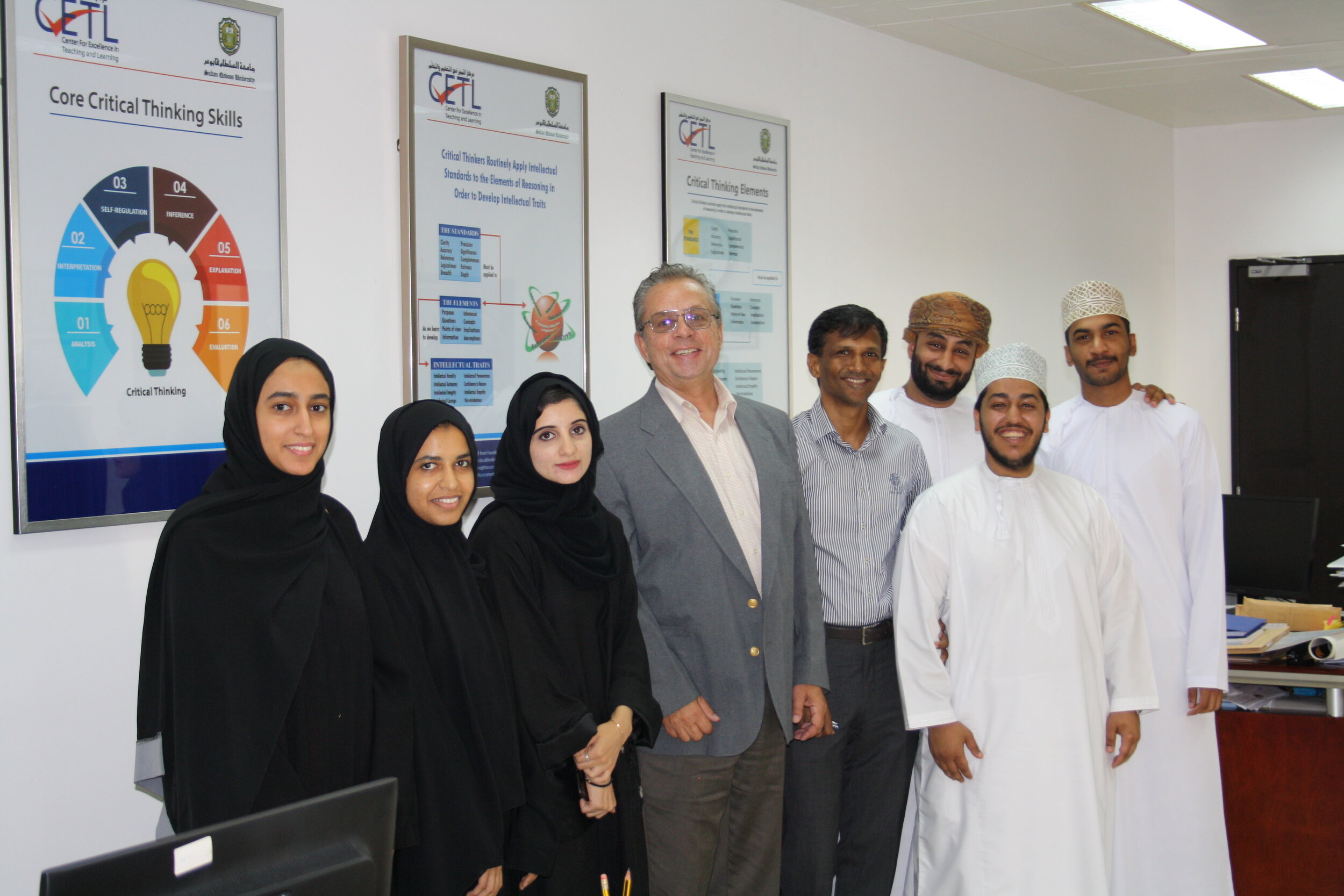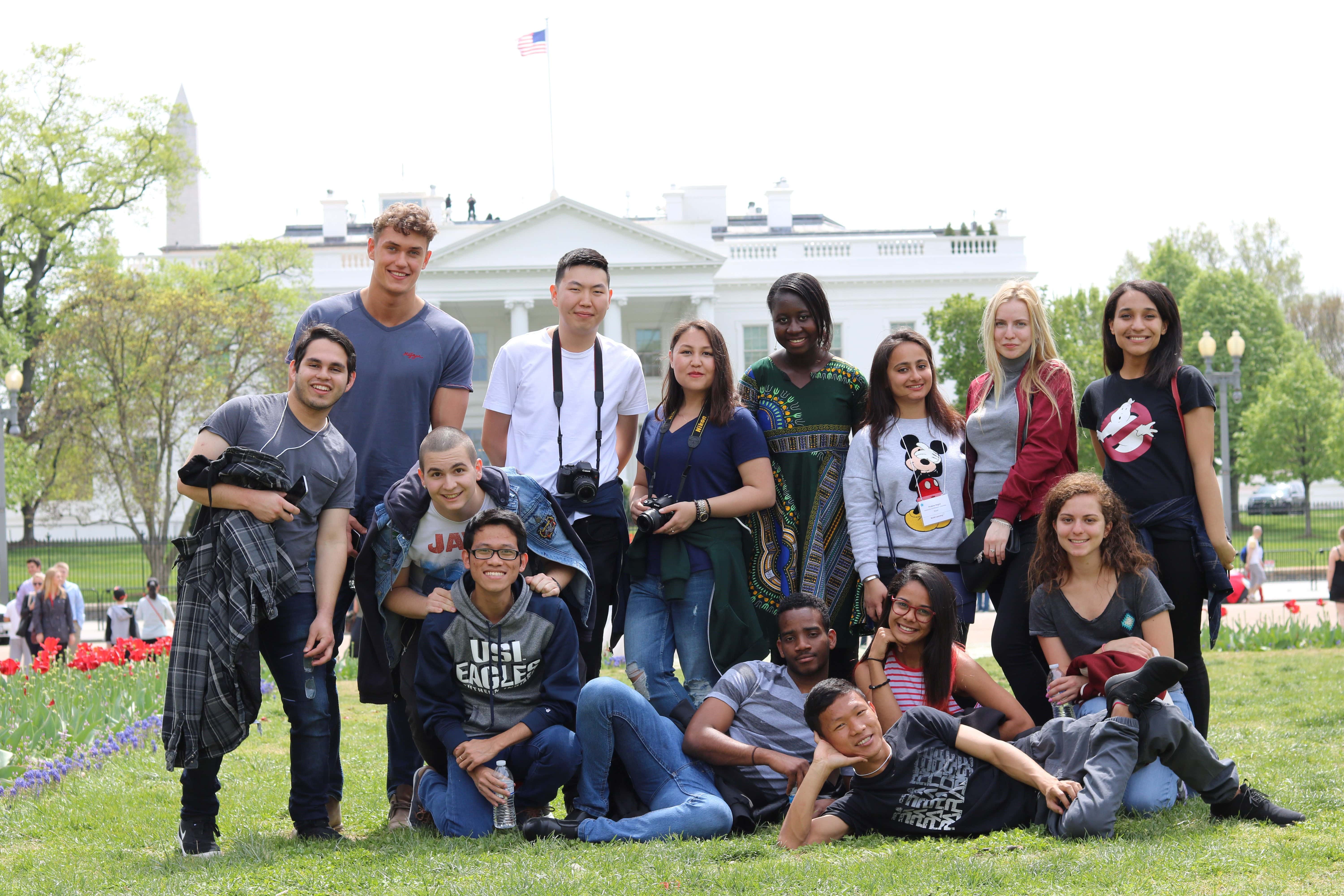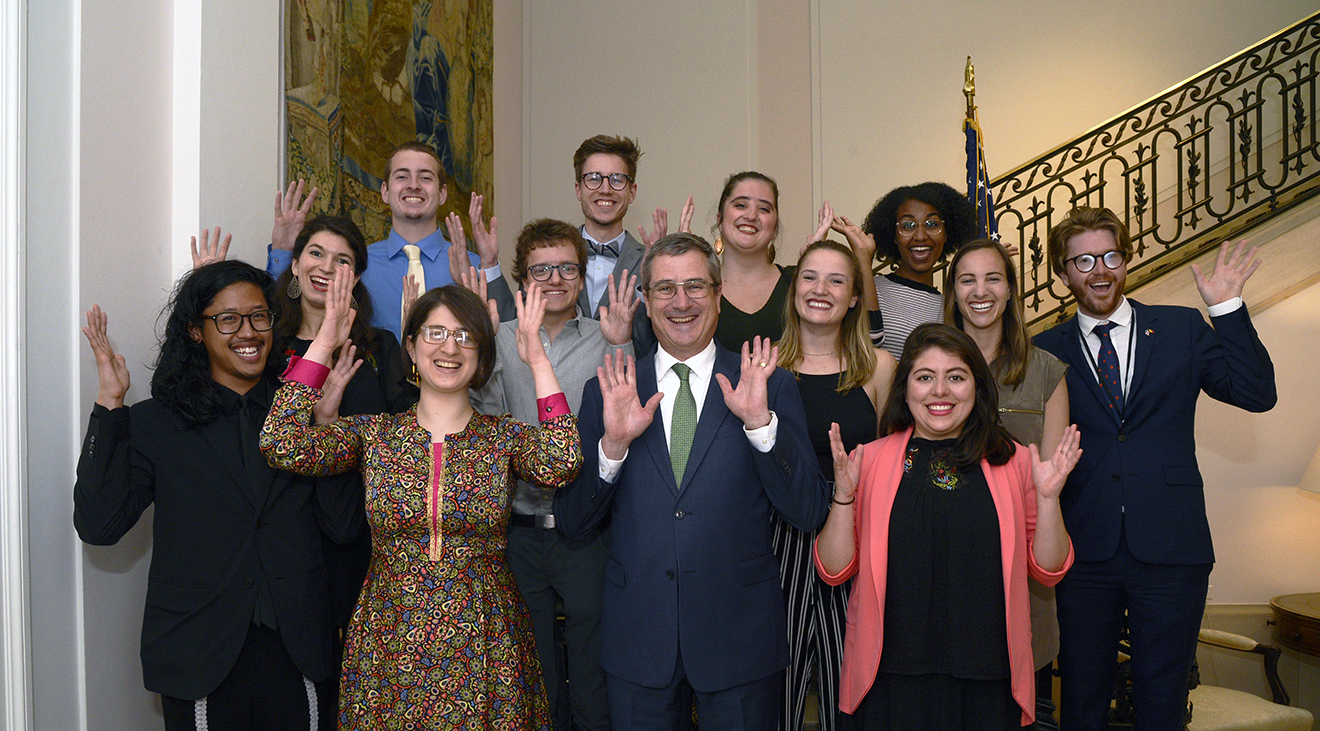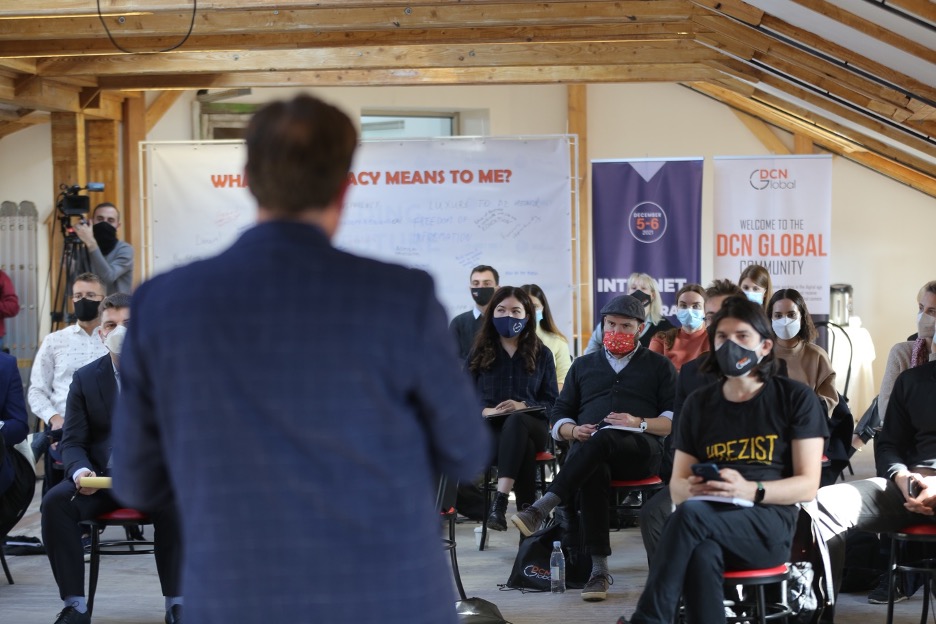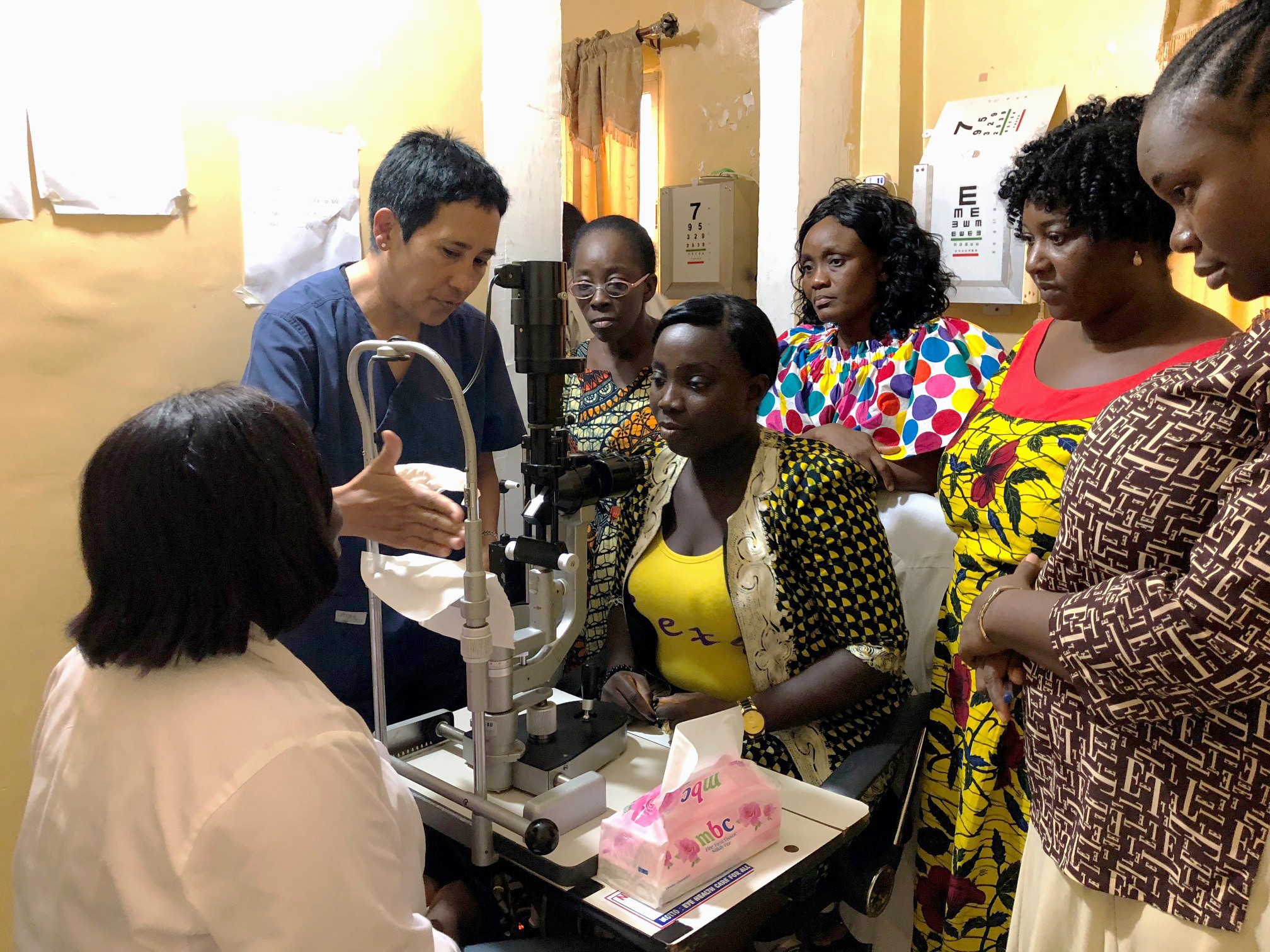
By Stephanie Genkin
Dave Paquin has taught hundreds of online and critical thinking courses at universities and educational institutions in the United States. So, when Sultan Qaboos University (SQU), Oman’s only public university, requested a Fulbright Specialist to train its faculty, he jumped at the opportunity to gain valuable professional experience abroad.
It was a perfect fit. Over the last 20 years, Paquin has honed his expertise in critical thinking development, online learning, and workforce training, first as a technician and instructor for the U.S. Navy and then as a college professor and administrator, before serving as the CEO of Delta Business Training.
SQU’s request for a Fulbright Specialist was spurred by the results of a university-wide survey indicating that incoming students had lower than average critical thinking skills compared to university students in other countries around the world.
Oman, located on the southeastern edge of the Arabian Peninsula, has few natural resources and is struggling to diversify its economy beyond oil exports. With fluctuations in worldwide oil prices, efforts to ensure sustainable employment for Oman’s young population have gained steam. Developing a professional workforce with critical thinking skills is essential to that effort.
As a Fulbright Specialist, Paquin worked with staff at SQU’s Center for Excellence in Teaching and Learning (CETL) to develop and implement an online training course in teaching critical thinking for faculty members across various disciplines such as engineering, medicine, and business.
The course aimed to help faculty members improve the way they deliver content in class and evaluate students. By replacing rote learning with problem solving skills, instructors can help promote independent thinking and better prepare young Omanis for the highly competitive international job market.
So far, 120 faculty have enrolled in the course.
Dr. Hameed Sulaiman, an associate professor of environmental science, was one of over 20 faculty members who completed Paquin’s course in May 2019.
He says the impact of the course was “huge.”
Sulaiman, who received SQU’S distinguished academic award for teaching last year explains: “It helped create an identity for myself as a teacher within a short period of introducing the critical thinking tools in a few of my classes.”
He learned strategies for teaching critical thinking for specific course content and has incorporated techniques from Paquin’s course like ‘one-minute papers’ and reflective writing exercises into his teaching.
“The results are great,” he adds. “I received very good student feedback that is motivating for me.”
The university’s aim is to incorporate instruction supporting critical thinking, moving away from lectures as the sole teaching method.
“Traditionally, young people are not encouraged to ask questions,” Paquin says. As a result, students often have little to no experience collaborating on group projects, participating in debates, or going on field trips. “It’s basically just lectures,” he adds.
Paquin says lectures are one of the poorest ways to teach people.
“The time with a professor could be used much more effectively,” he says. “Students might as well be at home listening to [lectures].”
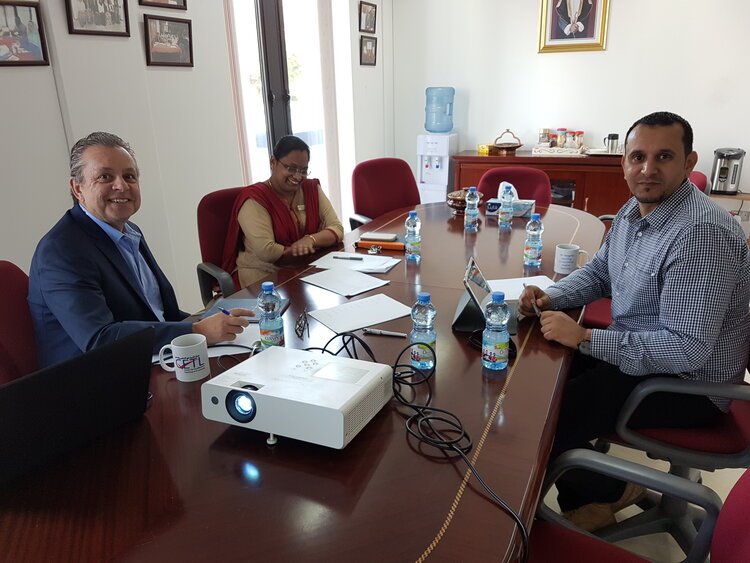
However, he observed a number of classes and has been encouraged that faculty members are open to incorporating change.
At the time of Paquin’s visit, SQU did not offer any online learning opportunities and no one at the university had online course development experience, so Paquin also consulted with CETL design teams to refine the university’s process and criteria for online course design. While in Oman, he met with over 20 instructors to advise them on putting their classes online.
Blessy Prabha Valsaraj, anassistant professor of Mental Health Nursing at SQU’s College of Nursing, participated in the critical thinking training and was one of the instructors who worked with Paquin to learn how to take her courses online.
Of the experience, she says Paquin was “very supportive throughout the course and gave critical feedback on our work.”
Valsaraj says that the novelty and feasibility of distance education made working with Paquin appealing. As it happened, the timing of his guidance couldn’t have been better. Just a month after Paquin’s final visit, the COVID-19 pandemic would pause in-person learning, and the demand for virtual classes skyrocketed overnight.
For Paquin, being a Fulbrighter has expanded his own professional networks and outlook. He was able to offer a hands-on critical thinking workshop at an international education conference in Oman, which he says was a great opportunity to network with innovative thinkers in education from across the Middle East, North Africa, and Europe.
Serving as a Fulbright Specialist also gave him a unique opportunity to experience life in a predominantly Muslim society for the first time and to learn about Omani culture.
“The only unfortunate thing about the Fulbright Specialist experience is that it came to an end,” says Paquin.
However, his relationship with SQU faculty continues: based on the positive results of his trainings, the university is exploring other funding sources for further collaboration.
“The Vice Chancellor and Deputy Vice Chancellor for Academic Affairs want Dave to design four additional online modules to create a totally online Certificate of Higher Education Teaching and Learning,” says Otherine Neisler, CETL’s former deputy director.
Discussions are underway to develop additional courses in 2021 and 2022 to complete the certificate program, and there is interest in eventually expanding the program to all higher education faculty in Oman.
For Paquin, being a Fulbrighter has opened many doors.
“I developed a good international network,” he says, adding that he’ll bring back to the U.S. what he learned.
“It has been an amazing and eye-opening experience to learn firsthand the challenges faced by faculty worldwide and how their cultures both enhance and challenge their academic work.”





